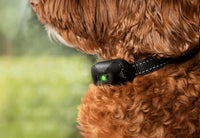Subtotal
$0.00
or
Worry and stress can rule us when a natural disaster or other emergency happens. Relieve some of this by making sure your pets, and not only you and your human family, have everything they need. Be prepared for an unexpected emergency. Here are the basics, but pets are individuals, so add whatever else that is not listed to your “in case of emergency” storage that they require.
Food and Water with Bowls. Keep a store of your pet's regular food and plenty of water. Ideally, you want enough for 5 days. Rotate this out, so it doesn't go bad.
Tip: For the bowls, use Tupperware that can not only store the food and water, but allow your pet to eat and drink from them. Replace and replenish this as needed. Water should be replaced every 2 months and keep note of expiration dates for food.
Leash, Collar with Tags & Pet Carrier. You need to be able to keep your pet close and secure. And tags will ensure that you get your pet back if lost. If your dog is the size of mine, over 100 lbs, a crate probably isn't an option. But for cats and smaller dogs, having one handy can make for quick and easy mobility.
First Aid Kit. This will include most of the same items that we need as well.
Tip: Include a few treats as well to distract your pet when giving medical attention.
Current Photos. Include at least one of you and your pet.
Medications & Vet Records. If your pet has medicines or other needs, include in your emergency pack along with any special instructions.
If your pet is prone to anxiety, I recommend including a Thundershirt® or calming collar. This can help relax your pet in times of stress.
Contact List. Phone numbers and addresses of pet-friendly hotels, veterinarians, American Humane Association, and friends and family in town and out.
All of these supplies can be safely stored in a lidded tub or other waterproof container. Mark it boldly on the outside, such as “Dog's Emergency Gear.” This way, you can easily identify it and everyone knows to grab it.
And if you have any other tips or suggestions, share them with us all in the comments!

How to Keep Racoons, Skunks, and Squirrels Away - Without Traps or Poison

Why Dogs Shouldn't Eat Turkey: What Every Pet Owner Should Know

You love your dog—but the constant barking every time someone walks past the fence? Not so much.

Handheld Bark Control vs. Collars | Best Dog Barking Deterrent Devices

10 Fun Pet Costume Ideas (and How to Keep Pets Comfortable)